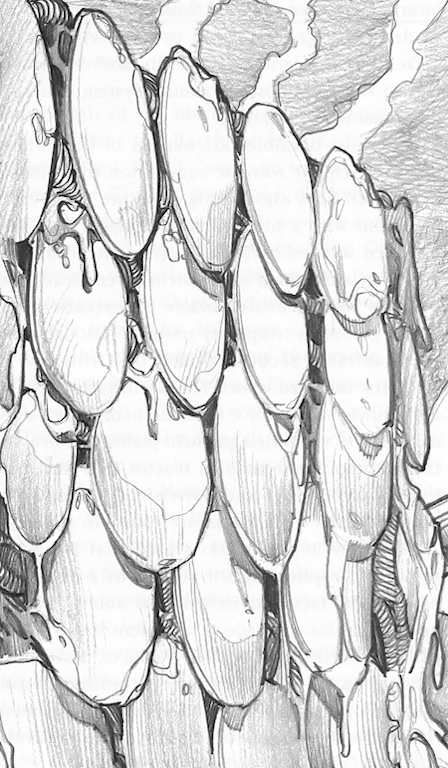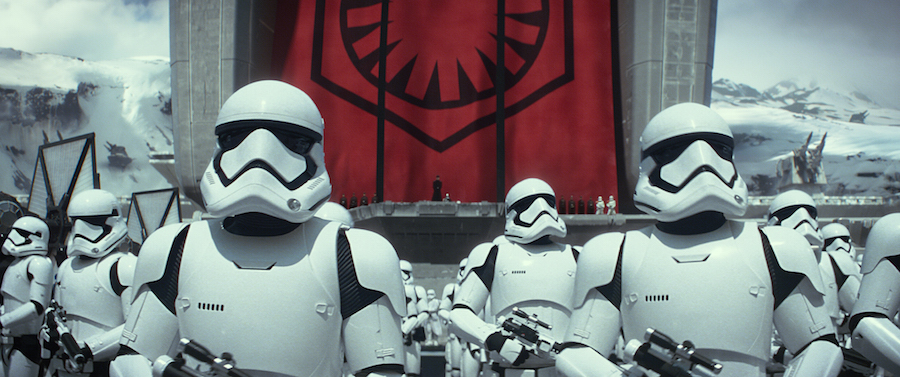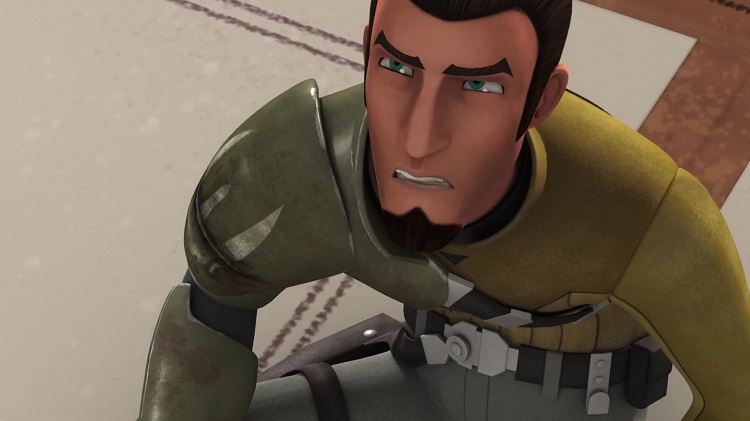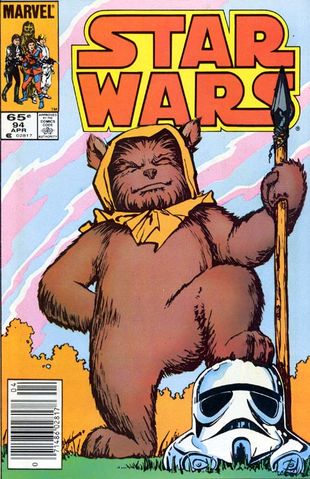 I love the Bantam era, and have in fact written in defense of a whole period of Star Wars publishing that, though ridiculous, is near and dear to my heart. There’s a sizable chunk of us fans who were brought in by books like the Thrawn trilogy and who kept reading even through The Crystal Star and The New Rebellion. Now, we’ve all had discussions about the plot quality, the villain and superweapon of the week, and all the other things we laugh at this whole era for. However, there are many good things. And one of them is the way this whole era handles politics and world-building. A galaxy that’s undergone two major government changes in the last twenty years of history won’t be the most reasonable place, and perhaps it took a publishing era of mixed-up timelines, impressively blundering villains, bizarre technology, and Waru to make it all really feel like Star Wars.
I love the Bantam era, and have in fact written in defense of a whole period of Star Wars publishing that, though ridiculous, is near and dear to my heart. There’s a sizable chunk of us fans who were brought in by books like the Thrawn trilogy and who kept reading even through The Crystal Star and The New Rebellion. Now, we’ve all had discussions about the plot quality, the villain and superweapon of the week, and all the other things we laugh at this whole era for. However, there are many good things. And one of them is the way this whole era handles politics and world-building. A galaxy that’s undergone two major government changes in the last twenty years of history won’t be the most reasonable place, and perhaps it took a publishing era of mixed-up timelines, impressively blundering villains, bizarre technology, and Waru to make it all really feel like Star Wars.
When I first heard that The Force Awakens might have a galaxy in which the New Republic or whatever wouldn’t be fully in power, I was suddenly excited. Even when I was twelve and devouring every last Star Wars book I could grab, I wondered just how the Rebel Alliance had made themselves into a functional government in just five years. How could they have gone from a rag-tag band of freedom fighters to a normal government, complete with bureaucracy enough to make us believe they’d been in power for years? It seemed a bit hard to understand, and seeing the New Republic withstand threat after threat to their rule and always come out unscathed made me wonder. Hearing that the reimagining of the galaxy might not be so secure actually made me feel better about TFA- it’s hard to reconstruct the government of a galaxy no matter what. We see that whatever’s going on between the New Republic and the Resistance and the First Order and whoever else is there, it isn’t very organized. Something happened that created the First Order, something happened that destroyed whatever Jedi were rebuilding, and the New Republic and the Resistance aren’t the same people. There are so many factions, so many layers of politics, and that makes for many stories to be told. Think back on all the different sides of the story in the old EU; we saw many small parts of Empire and Republic and others jockeying for power. It was a complicated mess, and that made for lots of storytelling space and a big galaxy for new problems to arise in.



 idea I could come up with was Leia getting pregnant with Ben immediately—like, “the night of the Endor celebration” immediately. The impending child not only accelerates her coming to terms with her heritage (and motivates her and Han to marry sooner) but gives her a huge extra reason to end the war with the Empire as soon as possible. Sure enough, Leia taking an even more aggressive role in the military campaign brings about a swifter military victory, and perhaps even further motivates complacent core worlders to rally behind her as a post-Empire figurehead. This has all sorts of random ripple effects, too—different people come to lead the Imperial Remnant, Luke perhaps founds his new Jedi Temple sooner, and so on.
idea I could come up with was Leia getting pregnant with Ben immediately—like, “the night of the Endor celebration” immediately. The impending child not only accelerates her coming to terms with her heritage (and motivates her and Han to marry sooner) but gives her a huge extra reason to end the war with the Empire as soon as possible. Sure enough, Leia taking an even more aggressive role in the military campaign brings about a swifter military victory, and perhaps even further motivates complacent core worlders to rally behind her as a post-Empire figurehead. This has all sorts of random ripple effects, too—different people come to lead the Imperial Remnant, Luke perhaps founds his new Jedi Temple sooner, and so on.